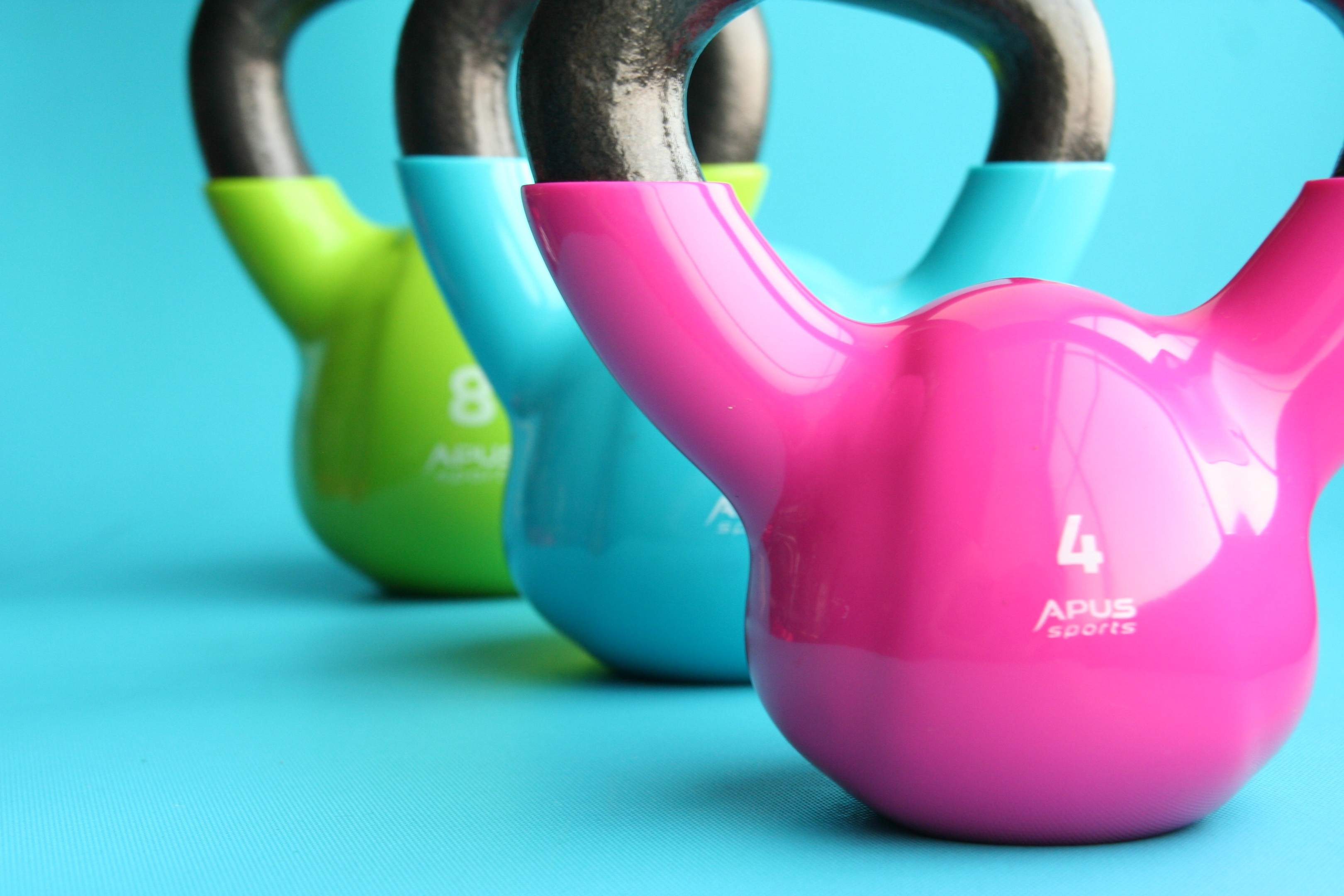In today's fast-paced world, health and wellness have become paramount concerns for many people. With the rise of sedentary lifestyles and unhealthy eating habits, finding effective ways to improve one's health and well-being has become a top priority. If you had a cheat code would you use it?
Two health practices that have gained significant attention in recent years and can be seen as a cheat code when it comes to improving your health are intermittent fasting and exercise.
While these two practices can be implemented separately, combining them can create a powerful duo that can unlock a wide range of health benefits including reduction in body fat and increase in muscle mass.
In this blog post, we will explore the benefits when you combine intermittent fasting and exercise, and why incorporating both into your routine can lead to improved overall health and well-being.
What is Intermittent Fasting and How Can You Use It to Unlock better health?
Part 1: Understanding Intermittent Fasting Intermittent fasting (IF) is a dietary approach that involves cycling between periods of fasting and eating. There are various methods of IF, such as the 16/8 method, where you fast for 16 hours (fasting period) and eat during an 8-hour window, or the 5:2 method, where you eat normally for 5 days and restrict calories for 2 days.
The main concept behind IF is to allow the body to enter a state of fasting, which can have numerous health benefits.
What are the benefits of Practicing Intermittent Fasting?

One of the primary benefits of intermittent fasting is improved insulin sensitivity. During the fasting window, the body has to rely on stored energy sources, such as glycogen and body fat, for fuel. Helping you to burn fat and lose weight. This can help regulate insulin levels and improve insulin sensitivity, which is crucial for managing blood sugar levels and preventing type 2 diabetes.
Intermittent fasting has also been shown to help you lose weight. By reducing the eating time frame or also called the feeding window, IF can help create a calorie deficit, leading to weight loss and fat loss over time.
Additionally, IF has been shown to increase fat burning and boost metabolism, which can further aid in weight loss efforts.
Furthermore, intermittent fasting has been linked to improvements in cognitive function. Studies have shown that fasting can stimulate the production of brain-derived neurotrophic factor (BDNF), a protein that plays a crucial role in brain health and memory. Increased BDNF levels have been associated with improved cognitive function, mood, and overall brain health.
What are the Benefits of Regular Exercise?

Part 2: Unleashing the Power of Exercise Exercise is a fundamental pillar of a healthy lifestyle, and its benefits go beyond just physical fitness.
Regular physical activity has been linked to numerous health benefits, including improved cardiovascular health, improved muscle mass, reduction in body fat, increased muscle strength and endurance, enhanced mental well-being, and reduced risk of chronic diseases.
One of the key benefits of exercise is its positive impact on cardiovascular health. Regular aerobic exercise, such as brisk walking, running, or cycling, can help improve cardiovascular fitness by strengthening the heart and improving circulation. Another key benefit is more muscle mass which helps with metabolism and overall well-being. Pack on more muscle with strength training and resistance exercise.
Exercise has also been shown to lower blood pressure, reduce LDL (low-density lipoprotein) cholesterol levels, and increase HDL (high-density lipoprotein) cholesterol levels, which can collectively reduce the risk of heart disease and other cardiovascular conditions.
Exercise is also crucial for maintaining healthy bones and muscles. Weight-bearing exercises, such as weightlifting and resistance training, can help improve bone density and prevent age-related bone loss. Additionally, regular strength training and lifting weights can increase muscle mass and strength, which can improve physical performance and reduce the risk of injuries.
Furthermore, exercise has a profound impact on mental well-being. Physical activity has been shown to boost mood, reduce symptoms of depression and anxiety, and improve overall mental health. Exercise also promotes the release of endorphins, which are often referred to as "feel-good" hormones, that can help reduce stress and improve overall well-being.
Common types of exercise:
- Strength Training
- Walking For Exercise (aerobic exercise)
- Intense workouts (HIIT or high intensity interval training)
- Lifting weights
- Low intensity workout
- Yoga
- Pilates

What is the Benefit of Doing IF and Exercise Together? And How Do they Work?
Part 3: The Synergy of practicing Intermittent Fasting and Exercise While intermittent fasting and exercise are powerful practices on their own, combining them can create a synergistic effect that can amplify their individual benefits and enhance overall health and well-being.
- Enhanced Fat Burn and Fat Loss: Practice intermittent fasting and exercise can work together to promote fat burning. During the fasting state, the body has depleted its glycogen stores and begins to rely on stored fat as an energy source. When combined with exercise, which increases energy expenditure, this can lead to more effective fat burning. In fact, exercising during the fasting state can enhance the body's ability to burn fat as fuel, leading to more significant weight loss and improved body composition.
- Increased Muscle Growth and Maintenance: Exercise is crucial for building and maintaining muscle mass, which is important for overall health and metabolism. When combined with intermittent fasting, exercise can be even more effective in promoting muscle growth and maintenance. During the fasting window, the body's growth hormone levels can increase, which can support muscle growth and repair. Additionally, exercising in a fasted state can lead to greater muscle protein synthesis, which is the process by which the body builds new muscle tissue. This can help improve muscle strength, endurance, and overall body composition.
- Improved Insulin Sensitivity: Both intermittent fasting and exercise have been shown to improve insulin sensitivity, and when combined, their effects can be even more potent. Regular exercise has been shown to increase insulin sensitivity, allowing cells to better utilize glucose for energy and reducing the risk of insulin resistance and type 2 diabetes. Intermittent fasting, on the other hand, can help regulate insulin levels and improve insulin sensitivity by reducing overall caloric intake and promoting losing weight. The combined effects of exercise and intermittent fasting can lead to improved insulin sensitivity, better blood sugar control, and reduced risk of metabolic disorders.
- Enhanced Cognitive Function: Both practicing intermittent fasting and exercise have been shown to have positive effects on cognitive function, and when used together, they can further enhance brain health. Exercise has been shown to improve cognitive function by increasing blood flow to the brain, promoting the growth of new neurons, and enhancing neurotransmitter release. Intermittent fasting can also boost brain health by increasing the production of BDNF, which promotes neuroplasticity and supports cognitive function. When used in combination, exercise and intermittent fasting can provide synergistic effects, leading to improved memory, focus, and overall cognitive performance.
- Increased Energy Levels and Endurance: Exercise is known to boost energy levels and improve endurance, allowing individuals to perform better in their daily activities and physical tasks. Intermittent fasting can further enhance these benefits by promoting the use of stored fat as an energy source during the fasting window, which can lead to improved energy levels and endurance during exercise. Moreover, intermittent fasting has been shown to increase mitochondrial biogenesis, which is the process by which the body produces more mitochondria, the powerhouse of cells. This can lead to improved energy production and better endurance during physical activities.
- Enhanced Autophagy: Autophagy is the body's natural process of cellular repair and regeneration, where damaged or dysfunctional cells are broken down and recycled to maintain cellular health. Both intermittent fasting and exercise have been shown to stimulate autophagy, and when combined, they can enhance this process. During intermittent fasting, the body goes into a state of cellular stress, which can trigger autophagy as a response to repair damaged cells. Exercise, particularly high-intensity or endurance exercise, has also been shown to stimulate autophagy. When combined, intermittent fasting and exercise can promote autophagy synergistically, leading to improved cellular health, reduced inflammation, and better overall wellness.
- Reduced Inflammation: Chronic inflammation has been linked to various health conditions, including obesity, heart disease, diabetes, and cancer. Both IF and exercise have been shown to reduce inflammation in the body, and when used together, their effects on inflammation can be amplified. Intermittent fasting has been shown to reduce inflammatory markers in the body, such as C-reactive protein (CRP) and interleukin-6 (IL-6), which are associated with inflammation and chronic diseases. Exercise, on the other hand, can help reduce inflammation by improving blood flow, reducing oxidative stress, and promoting the release of anti-inflammatory compounds. When combined, IF and exercise can work synergistically to reduce inflammation in the body, leading to improved overall health and reduced risk of chronic diseases.
- Enhanced Heart Health: Both intermittent fasting and exercise have been shown to promote heart health, and when used together, they can provide even greater benefits. Exercise is known to improve cardiovascular fitness, lower blood pressure, and reduce the risk of heart disease. Intermittent fasting can also promote heart health by reducing risk factors such as obesity, high blood sugar, and inflammation. Moreover, intermittent fasting has been shown to improve lipid profile by reducing LDL (bad) cholesterol levels and increasing HDL (good) cholesterol levels, which are important markers for heart health. When combined, IF and exercise can work synergistically to enhance heart health and reduce the risk of cardiovascular diseases.
- Improved Gut Health: The gut plays a crucial role in overall health, as it houses trillions of beneficial bacteria that are important for digestion, immunity, and overall well-being. Both intermittent fasting and exercise have been shown to promote gut health, and when combined, they can have even greater effects. Intermittent fasting can help improve gut health by allowing the gut to rest and repair during the fasting window, reducing inflammation in the gut, and promoting the growth of beneficial bacteria. Exercise has also been shown to improve gut health by increasing blood flow to the gut, reducing gut inflammation, and promoting the growth of beneficial bacteria. When used together, intermittent fasting and exercise can support a healthy gut microbiome, leading to improved digestion, immunity, and overall gut health.
- Enhanced Longevity: Both intermittent fasting and exercise have been associated with increased lifespan and improved longevity. Intermittent fasting has been shown to extend lifespan in various animal studies and has been linked to reduced risk of age-related diseases such as cancer, neurodegenerative diseases, and cardiovascular diseases. Exercise has also been shown to extend lifespan by improving overall health, reducing the risk of chronic diseases, and promoting cellular health. When combined, intermittent fasting and exercise can have synergistic effects on longevity, leading to improved overall health and extended lifespan.
Tips for Incorporating Intermittent Fasting and Exercise into Your Routine:
If you're interested in combining intermittent fasting and exercise to optimize your health and wellness, here are some tips to help you get started:
- Consult with a healthcare professional: Before making any changes to your diet or exercise routine, it's important to consult with a healthcare professional, especially if you have any pre-existing health conditions or concerns.
- Start gradually: If you're new to intermittent fasting or exercise, it's best to start gradually to allow your body to adjust. Begin with shorter fasting periods and light exercises like walking, and gradually increase the duration and intensity over time.
- Choose the right type of exercise: Different types of exercise have different effects on the body, and the best type of exercise for you may depend on
Dr. Steve's Expert Tips To Fasting and Exercise:
- Focus on feeling good. Getting healthy and improving your life becomes easy and seamless this way. Letting small wins compound daily for better health.
- Get good restful sleep every night. Go to bed at the same time every night and try to wake up at the same time every morning. Get into a good routine. Shoot for 7-8 hours of sleep a night if you're a man and 8-9 hours if you're a woman.
- Stay hydrated throughout the day. Drink water and you may need to use electrolyte powder for more hydration.
- Limit stress.
- Get moving! Start with a walking program. Focus on at least 5,000 steps per day and build up to 10,000-12,000 steps per day.
Focusing on these 5 things makes losing weight and hitting your fitness goals so much easier as it keeps you in the right mindset to succeed.
Common questions related to combining intermittent fasting and exercise together:
- Can I exercise during my fasting window? Yes, you can exercise during your fasting window. However, it's important to listen to your body and be mindful of your energy levels. If you're feeling fatigued or lightheaded, it may be best to opt for low-intensity exercise such as walking or gentle yoga. High-intensity exercises like weightlifting or high-intensity interval training (HIIT) may be more challenging during a fasting window, as they require more energy. It's important to stay hydrated and fuel your body appropriately during your eating window to support your exercise routine.
- What is the best time to exercise during intermittent fasting? The best time to exercise during intermittent fasting can vary depending on your personal preferences and schedule. Some people prefer to fasted exercise in the morning during their fasting window, while others prefer to exercise during their eating window. There is no one-size-fits-all answer, as it largely depends on what works best for your body and lifestyle. Experiment with different times of the day to find what feels most comfortable and energizing for you.
- What should I eat after exercising during intermittent fasting? After exercising during intermittent fasting, it's important to refuel your body with a balanced meal that includes carbohydrates, protein, and healthy fats. This can help replenish glycogen stores, repair muscles, and support recovery. Opt for nutrient-dense foods such as lean proteins, whole grains, healthy fats, and plenty of vegetables. It's also important to stay hydrated by drinking plenty of water before and after exercise, especially during your eating window.
- Can intermittent fasting affect my exercise performance? Intermittent fasting may affect exercise performance differently for different individuals. Some people may find that their exercise performance is not affected, while others may experience changes in energy levels or performance during fasting periods. It's important to listen to your body and make adjustments as needed. If you're experiencing difficulties with exercise performance during intermittent fasting, you may consider adjusting your fasting window, consuming a small pre-workout meal, or choosing lower-intensity exercises during fasting periods. It's also crucial to ensure you're getting enough nutrients and hydration during your eating window to support exercise performance.
- How can I stay hydrated during intermittent fasting and exercise? Staying hydrated is crucial during intermittent fasting and exercise. Make sure to drink plenty of water during your eating window and pay attention to your body's thirst cues. It's also important to drink water before, during, and after exercise to replenish fluids lost through sweat. If you're engaging in a long workout prolonged or intense exercise, you may consider consuming electrolyte-rich beverages or foods to replenish lost electrolytes. However, avoid sugary sports drinks or beverages with added calories during fasting periods, as they may break your fast.
- Should I take any supplements while combining intermittent fasting and exercise? It's important to talk to your healthcare provider before taking any supplements, as individual needs may vary. In some cases, certain supplements may be recommended to support overall health and exercise performance during intermittent fasting. For example, a protein supplement may be beneficial for muscle recovery and growth, especially if you're not able to meet your protein needs through food alone. However, it's essential to choose high-quality supplements and be mindful of any added calories or potential impacts on your fasting window.
- Can intermittent fasting and exercise help me lose weight? Yes, combining intermittent fasting and exercise can be an effective strategy for weight loss. Intermittent fasting can help create a calorie deficit by limiting the time window for eating, which can lead to decreased calorie intake. Exercise can also help create a calorie deficit by burning additional calories. When used together, IF and exercise is a powerful weight loss combo.
Conclusion:
In summary, combining intermittent fasting and exercise can provide numerous benefits to overall health and well-being. From enhanced fat burning and muscle growth to improved insulin sensitivity, cognitive function, energy levels, and gut health, the synergistic effects of intermittent fasting and exercise can lead to improved physical, mental, and metabolic health. Additionally, the reduction in inflammation, promotion of autophagy, and potential for increased longevity make this combination a powerful tool for optimizing health and wellness.









